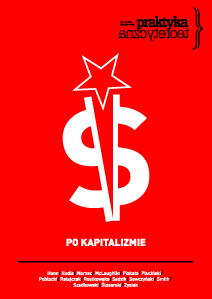Abstract
This essay is a polemic with Peter Hudis’s paper Yes, There Is
An Alternative – And It Can Be Found in Marx in the context
of his broader conception (Marx’s Concept of the Alternative
to Capitalism (Brill 2013)). The author analyses the mentioned
proposition and its ability to answer to the following questions
– the “classical” one (Did Marx develop an alternative to capitalism?)
and the “contemporary” one (Did Marx develop
an alternative to capitalism, which matters for us?). According
to the author orders constituted by both of these questions
are disturbingly melted in Hudis work.
References
Claeys, G., Tower L. 1999. Sargent The Utopia Reade. New York: New York University Press.
Emmet, D. 1994. The Perfect Society: Utopia or Regulative Ideal? in The Role of the Unrealisable: A Study in Regulative Ideals. New York: St Martin’s Press.
Hudis, P. 2012. Marx’s Concept of the Alternative to Capitalism. Leiden: Brill.
Hudis, P. 2014. ,,Yes, There Is An Alternative – And It Can Be Found in Marx.” Praktyka Teoretyczna 9.
License
“Theoretical Practice” seeks to put into practice the idea of open access to knowledge and broadening the domain of the commons. It serves the development of science, thinking and critical reflection. The journal is published in open-access mode under the CC-BY-NC-SA 4.0 license (detail available here: http://creativecommons.org/licenses/by-nc-sa/4.0/). Articles published in the journal may be freely distributed, stored, printed and utilized for academic and teaching purposes without restrictions.
They should not be, however, used for any commercial purposes or be reconstructed into derivative creations. Access to the journal may not be limited or offered for a fee by any third party.
Prospective authors are obliged to fill in, sign and send back the publishing contract compliant with the CC licencing. [PL.pdf, PL.doc, EN.pdf,EN.doc].
According to this contract, authors grant the journal a non-exclusive right to publish their work under the creative commons license (CC-BY-NC-SA 4.0) without any financial obligation on both sides of the contract.
Before submission authors should make sure that derivative materials they use are not protected by copyright preventing their non-commercial publication. Authors are responsible for any respective copyright violations.
